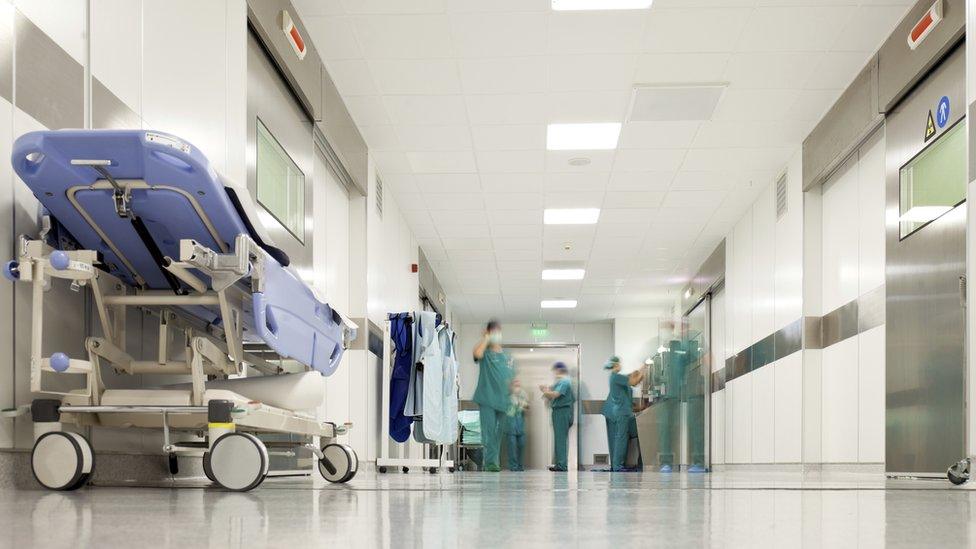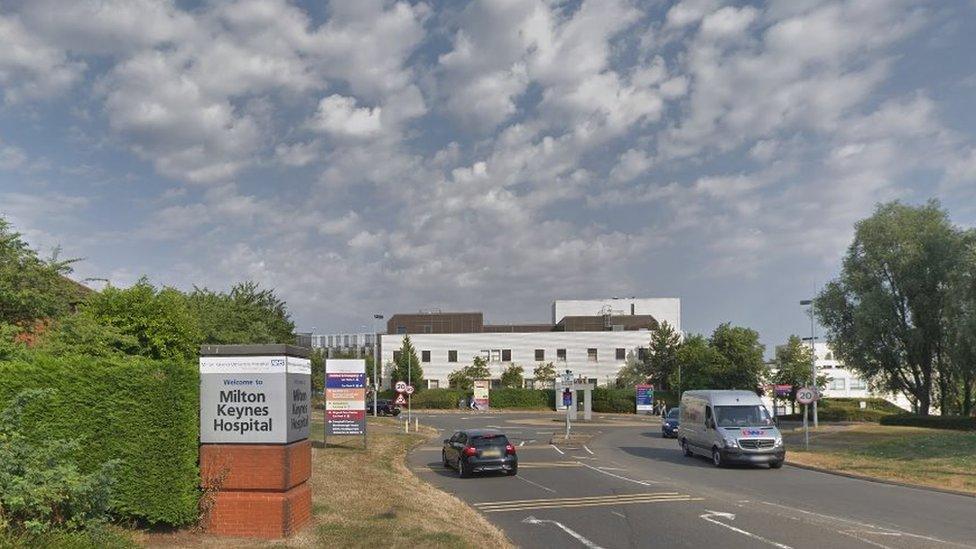Milton Keynes University Hospital A&E staffing 'puts lives at risk'
- Published

John Shrosbree died in hospital in June
Patients' lives are being put at risk at a short-staffed A&E department where a man died amid a series of failings, coroner has said.
John Shrosbree, 72, died a week after arriving "clearly unwell" at Milton Keynes Hospital, a report found.
The seriousness of his illness was not recognised and he went into cardiac arrest, suffering brain damage, coroner Tom Osborne said.
Hospital bosses said they had made changes to increase staffing levels.
Mr Osborne, who oversaw the inquest into Mr Shrosbree's death, said it became clear during evidence that problems in the department were mainly the result of a lack of staff.
"I was told that staff shortages occur on a daily basis," he said.
"I believe that as a result lives of the citizens of Milton Keynes are being put at risk and the problem should be addressed as a matter of urgency."
Treatment delays
In Mr Shrosbree's case, he said, observations and tests confirmed the patient was unwell with high potassium levels when he was admitted on 4 June.
But his observations were not reviewed and his care was not escalated to a higher level, Mr Osborne said.
He concluded there was a "failure to take the necessary steps to treat" his illness, including a delay in starting treatment.
Mr Osborne, senior coroner for Milton Keynes, issued the hospital with a Regulation 28 notice, external - also known as a Prevention of Future Deaths report - after the inquest concluded.
It ordered that "action should be taken to prevent future deaths".

Milton Keynes University Hospital NHS Foundation Trust accepted the coroner's findings
A spokeswoman for Milton Keynes University Hospital NHS Foundation Trust said it accepted the coroner's findings and had increased the levels of nursing leadership in the emergency department.
"We are making a thorough assessment of the coroner's recommendations and will be reporting our actions to him in due course," she added.